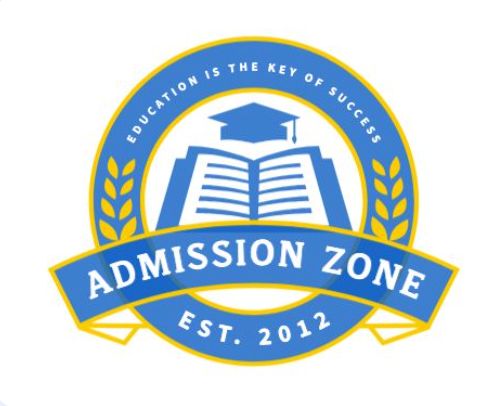
Admission Zone provides essential information on MS Orthopaedics admission, including requirements and application tips.
Orthopaedics is a branch of surgery which focuses on the study of the musculoskeletal system including bones, joints, ligaments, tendons, and muscles. It deals with both the prevention and treatment of injuries, deformities, and diseases affecting this bone system. MS (Master of Surgery) in Orthopaedics is a postgraduate degree that allows medical professionals to become Orthopaedic surgeons. We will discuss MS Orthopaedics, from its curriculum and admission process for career opportunities and challenges faced by Orthopaedic surgeons.


What is MS Orthopaedics
MS Orthopaedics is a three-year course for doctors who want to specialize in orthopaedic surgery. It focuses on diagnosing and treating conditions related to the bones, joints, ligaments, muscles, and tendons of the human body. Orthopaedic surgeons use both surgical and non-surgical methods to treat musculoskeletal issues, and they also work closely with other specialists, such as physical therapists, to ensure comprehensive patient care. The program offers both theoretical learning and practical experience for managing orthopaedic conditions.
The Role of an Orthopaedic Surgeon
Orthopaedic surgeons are medical professionals who focus on treating musculoskeletal disorders. They handle conditions, including trauma-related injuries like fractures, congenital deformities, degenerative diseases like Osteoarthritis, sports injuries, and spine issues. Orthopaedic surgeons are skilled in performing surgeries such as joint replacements, bone fixations, and spinal fusions, among others. Besides performing surgery, they also provide non-surgical treatment options such as physical therapy, medication, and lifestyle modifications to help manage or prevent musculoskeletal conditions.
MS Orthopedics Course Duration
The MS Orthopedics course usually takes 3 years to complete after finishing an MBBS degree. It is a postgraduate program where students learn how to treat bone, joint, and muscle problems through both theory and hands-on practice.
During the course, students get training in surgeries, diagnosis, and patient care related to the musculoskeletal system. The program also includes working in hospitals under experienced doctors, which helps build real-world skills needed to become a specialist in orthopedics.
MS Orthopedics Salary
MS Orthopedics is a specialized medical field, and doctors who complete this degree generally earn a good salary. In India, a fresh MS Orthopedics graduate can earn around ₹8 to ₹15 lakhs per year, depending on the hospital, city, and experience. With more years of practice, the income increases.
In countries like the USA or UK, orthopedic surgeons earn much more, generally over $300,000 a year. The salary also depends on skills, reputation, and the type of work they do.
MS Orthopedics Admission Process
Getting admission into an MS Orthopedics program usually starts with clearing the NEET-PG entrance exam, which is required in most parts of India. Your rank in this exam plays a big role in which college you can get into.
After the exam, there’s a counseling process where students choose colleges based on their scores. Some top institutes may also have interviews or additional tests. It’s important to check specific college requirements and keep documents ready for smooth admission.
Overview of MS Orthopedics
MS Orthopedics is a postgraduate medical course focused on the diagnosis, treatment, and prevention of bone, joint, and muscle problems. Doctors who complete this course become specialists in handling injuries like fractures, arthritis, and spinal issues.
The course usually takes three years and includes both theoretical learning and practical surgical training. It prepares doctors to work in hospitals, clinics, or even pursue further research. MS Orthopedics is ideal for those passionate about helping people regain movement and live pain-free lives.
Eligibility Criteria for MS Orthopaedics
To be eligible for an MS Orthopaedics, candidates generally need to have completed their MBBS degree from a recognized medical college. They must also have completed a mandatory one-year internship to get practical training. After this, they need to clear entrance exams like NEET-PG for admission into the postgraduate program.
Also, some colleges may have specific requirements like minimum marks or have reserved seats for certain categories. Candidates should check the individual college’s guidelines before applying. Passion for Orthopaedics and dedication to learning are key for successes in this field.
Preparation Tips for MS Orthopaedics Entrance Exams
Preparing for MS Orthopaedics entrance exams is based on important subjects like Anatomy, Physiology, and Orthopaedics. Using good books and solving previous years’ question papers can build your confidence and help you to improve speed.
Also, joining coaching classes or study groups can provide you support for your studies. Taking short breaks and staying healthy is important to keep the mind fresh. With regular practice and dedication, you can get confirmed MD/MS admission.
Work Environment and Day as an Orthopaedic Surgeon
An Orthopaedic surgeon generally works in hospitals or clinics, where they treat patients with bone and joint problems. Their day generally starts with checking patient reports, followed by surgeries or consultations.
A general day can be busy and sometimes stressful, but also worth it when patients recover fast.
Research and Innovations in Orthopaedics
Research in orthopaedics focuses on finding better ways to treat bone and joint related problems. Scientists and doctors work together for new ideas like implants, and improve surgical techniques. This helps patients to recover faster with less pain.
Innovations like robotic surgery and 3D printing are changing how orthopaedic care is provided to patients. These new technologies make treatments more accurate. Overall, research helps make life better for people with musculoskeletal issues.
Tips for Success During MS Orthopaedics Training
For MS Orthopaedics training, it’s important to stay updated. Practice regularly in clinics and surgeries to build your skills. Time management helps you to balance your study, work, so you don’t get overloaded.
Also, learn from experienced doctors and be open for feedback. Staying positive and patient during your training keeps you motivated. Hard work and dedication will help you to become a confident & skilled Orthopaedic surgeon.
MS Orthopaedics Curriculum
The MS Orthopaedics curriculum has a duration of three years, providing an understanding of musculoskeletal anatomy, surgical techniques, and clinical management.
- Year 1: The first year is generally dedicated to mastering the basic concepts of orthopaedics, including human anatomy, musculoskeletal physiology, and pathology. Students also start learning about various musculoskeletal diseases, diagnostic imaging techniques, and patient management protocols.
- Year 2: The second year is for practical training in performing surgeries, including fracture management, joint replacements, and spinal surgery. Students spend time in Orthopaedic wards and operation theatres, learning surgical techniques under supervision.
- Year 3: In the final year, students get advanced knowledge in Orthopaedic surgeries, such as trauma care, reconstructive surgeries, and pediatric orthopaedics. This year is focused more on practical experience, as students take on more responsibility in treating patients.
Admission Process for MS Orthopaedics
To pursue an MS in Orthopaedics, candidates must first complete their MBBS (Bachelor of Medicine and Bachelor of Surgery) degree from a recognized medical college. Admission to MS Orthopaedics is competitive, and the process generally includes the following steps.
- Entrance Exams: Admission to the MS Orthopaedics program is usually determined through entrance exams. These exams are conducted by medical colleges or universities and check the candidates’ knowledge of basic medical sciences, surgery, and orthopaedics.
- Counseling/Interview: After qualifying for the entrance exam, candidates may be required to attend counseling or interviews to finalize their admission after fees payment.
Important Skills for MS Orthopaedics
Orthopaedic surgeons require skills to perform successful surgeries and manage complex cases.
- Surgical Expertise: Precision is key in Orthopaedic surgery, whether you are fixing a fracture or performing a joint replacement.
- Diagnostic Acumen: Orthopaedic surgeons must diagnose conditions such as bone fractures, joint deformities, and degenerative diseases through imaging tests like X-rays, CT scans, and MRIs.
- Physical Endurance: Orthopaedic surgeries can last several hours, requiring surgeons to maintain concentration and physical stamina throughout the procedure.
- Communication Skills: Effective communication is essential, as orthopaedic surgeons must work closely with patients, explaining their conditions and treatment options.
Common Conditions Treated by Orthopaedic Surgeons
Orthopaedic surgeons engaged in the diagnosis and treatment of a wide range of musculoskeletal conditions.
- Fractures and Dislocations: Broken bones and displaced joints require immediate treatment to prevent further injury and restore normal function.
- Osteoarthritis: A degenerative disease that causes the cartilage in joints to wear away, leading to pain and limited mobility.
- Spinal Disorders: Conditions like scoliosis, herniated discs, and spinal stenosis can cause severe pain and require surgical intervention.
- Sports Injuries: Orthopaedic surgeons often treat injuries such as ligament tears, tendon injuries, and muscle strains common among athletes.
- Congenital Disorders: Conditions such as clubfoot, hip dysplasia, and limb deformities can be corrected through surgical procedures.
- Joint Replacements: Joint replacements such as hip, knee, and shoulder replacements can significantly improve a patient’s life.
Types of Surgeries Performed by Orthopaedic Surgeons
Orthopaedic surgeons perform surgeries, each designed to treat specific musculoskeletal conditions.
- Fracture Fixation: In cases of bone fractures, Orthopaedic surgeons perform surgeries to realign the bone and secure it in place using screws, plates, or rods.
- Joint Replacement Surgery: This involves replacing damaged or arthritic joints with artificial ones, generally performed in the hip, knee, or shoulder.
- Arthroscopy: A procedure that allows surgeons to diagnose, and treat joint problems using a small camera and specialized instruments.
- Spinal Fusion: This surgery is used to treat conditions like spinal instability, degenerative discs, or scoliosis by fusing two or more vertebrae together.
- Soft Tissue Repairs: Orthopaedic surgeons repair tendons, ligaments, and muscles that may be torn or damaged, such as in rotator cuff injuries or ACL (anterior cruciate ligament) tears.
Subspecialties in Orthopaedics
Orthopaedics is a broad field, and many surgeons choose to specialize further in specific areas.
- Pediatric Orthopaedics: Focuses on treating musculoskeletal problems in children, including congenital deformities and growth-related disorders.
- Sports Medicine: Involves the treatment of athletic injuries, ranging from fractures to soft tissue injuries like ligament tears and tendonitis.
- Spine Surgery: Specializes in treating conditions affecting the spine, including scoliosis, degenerative discs, and spinal stenosis.
- Trauma Surgery: Involves the treatment of complex fractures and injuries caused by accidents or trauma, such as fractures from falls or car accidents.
- Joint Reconstruction: Focuses on restoring damaged joints through procedures such as hip and knee replacements or cartilage repair.
Career Opportunities After MS Orthopaedics
After completing MS Orthopaedics, graduates can pursue a career path.
- Private Practice: Many orthopaedic surgeons open their own clinics or join established practices where they can treat patients and perform surgeries.
- Hospital Employment: Surgeons can work in hospitals, treating patients in both outpatient and inpatient settings.
- Academic Careers: Some MS Orthopaedics graduates choose to become professors or researchers, teaching the next generation of medical professionals or contributing to the development of new treatments.
- Sports Teams or Organizations: Orthopaedic surgeons specializing in sports medicine may work with professional sports teams, providing treatment for athletes’ injuries.
- Medical Consulting: Experienced Orthopaedic surgeons can offer consulting services to medical device companies or health organizations, helping to improve Orthopaedic care and technology.
Challenges in MS Orthopaedics
While a career in orthopaedics has higher earnings but it is not without challenges.
- High Pressure: Orthopaedic surgeons often work under pressure, especially in trauma cases, where quick decision is important.
- Long Hours: Surgeons, particularly those in hospitals, may face long and irregular working hours, including on-call duties and emergency surgeries.
- Physical Demand: Performing surgery for extended hours and dealing with physically demanding procedures.
- Staying Current: Orthopaedic surgery is a constant field, and surgeons must stay updated with new techniques, technologies, and research to provide the best care to their patients.
Technology in Orthopaedics
Advancements in technology have significantly impacted orthopaedic surgery, leading to better patient outcomes and more efficient treatments.
- Minimal Surgery: Laparoscopic and robotic surgeries allow surgeons to perform complex operations with smaller incisions.
- 3D Printing: This technology has revolutionized prosthetics and implant creation, allowing for the production of customized implants that fit a patient’s unique anatomy.
- Robotics: Robotic systems help surgeons perform joint replacements and spinal surgeries with precision and accuracy.
Future of MS Orthopaedics
The future of MS Orthopaedics looks good, with advancements in surgical techniques, technologies, and patient care. As the field evolves, there is likely to be an increased focus on invasive surgeries, personalized medicine, and regenerative therapies. The integration of robotics and AI will further enhance the precision of Orthopaedic procedures, improving patient outcomes and recovery times.
How many MS Orthopaedics Seats are there in India?
In India, the number of MS Orthopaedics seats varies each year and depends on different medical colleges and universities. Generally, there are around 1,000 to 1,200 seats available for the MS Orthopaedics course across the country. These seats are spread over government and private medical colleges, giving students various options to pursue their specialization in orthopaedics.
The exact number can change due to new colleges opening or changes in regulations by medical councils. If you’re interested in this field, it’s best to check the latest official updates from medical authorities for the most accurate information.
MS in Orthopaedics at Government Institute of Medical Sciences Overview
The MS in Orthopaedics at the Government Institute of Medical Sciences offers specialized training in bone, joint, and muscle health. Students learn to diagnose and treat various musculoskeletal problems through hands-on experience and expert guidance. The program focuses on building strong clinical skills and knowledge in orthopedic surgery.
The institute provides modern facilities and a supportive environment for learning. Graduates are well-prepared to handle complex cases and contribute to patient care, making it a great choice for those passionate about Orthopaedics.
Why MS Orthopaedics?
Choosing MS Orthopaedics is a great decision for those passionate about helping people move pain-free. This field focuses on treating bones, joints, and muscles, which are essential for daily life. Orthopaedic doctors get to fix injuries, relieve pain, and improve quality of life, making a real difference.
Also, MS Orthopaedics offers exciting challenges and continuous learning. With advances in technology and treatments, it keeps doctors engaged and growing. It’s a rewarding career for those who love hands-on work and patient care.

FAQs:
Ans: The MS Orthopaedics program generally lasts three years after completing an MBBS degree.
Ans: Orthopaedic surgeons perform surgeries such as fracture fixation, joint replacement, arthroscopy, spinal fusion, and soft tissue repairs.
Ans: Subspecialties include pediatric, sports medicine, spine surgery, trauma surgery, and joint replacement.
Ans: Orthopaedic surgeons face challenges such as high pressure in trauma cases, long working hours, physical demands, and staying updated with advancements in the field.
Ans: Technology has improved orthopaedic surgery through minimally invasive techniques, robotics, 3D printing of prosthetics, and the use of AI for diagnostics and surgery planning.
Connect with Us
Start your medical educational journey with the Admission Zone! Contact us today on 9205488482/ 7599994403 or WhatsApp us to explore a world of educational possibilities in the state and secure your admission to a brighter future.
MD / MS ADMISSION IN INDIA — STATE-WISE
Conclusion
MS Orthopaedics is a specialization that offers opportunities to improve patients’ quality of life through surgical intervention. Orthopaedic surgeons play an important role in treating of musculoskeletal disorders, from traumatic injuries to degenerative diseases. With the rapid advancement of technology, Orthopaedics is continuously growing, offering new tools and techniques to enhance patient care. The challenges may be numerous, but the satisfaction of helping patients get mobility and function is unparalleled. With continued growth and innovation, the future of orthopaedic surgery looks good.







